
Filter News
Area of Research
- Advanced Manufacturing (2)
- Biological Systems (1)
- Biology and Environment (20)
- Building Technologies (3)
- Clean Energy (35)
- Computational Engineering (1)
- Computer Science (5)
- Electricity and Smart Grid (1)
- Functional Materials for Energy (1)
- Fusion and Fission (2)
- Isotopes (7)
- Materials (39)
- Materials for Computing (5)
- National Security (8)
- Neutron Science (9)
- Nuclear Science and Technology (4)
- Quantum information Science (1)
- Supercomputing (12)
News Type
News Topics
- (-) Big Data (22)
- (-) Bioenergy (22)
- (-) Buildings (29)
- (-) Cybersecurity (9)
- (-) Isotopes (15)
- (-) Microscopy (20)
- (-) Nanotechnology (24)
- (-) Physics (10)
- (-) Security (4)
- (-) Space Exploration (11)
- 3-D Printing/Advanced Manufacturing (50)
- Advanced Reactors (18)
- Artificial Intelligence (23)
- Biology (25)
- Biomedical (15)
- Biotechnology (3)
- Chemical Sciences (26)
- Clean Water (13)
- Climate Change (32)
- Composites (13)
- Computer Science (57)
- Coronavirus (15)
- Critical Materials (13)
- Decarbonization (15)
- Energy Storage (48)
- Environment (60)
- Exascale Computing (4)
- Fossil Energy (1)
- Frontier (4)
- Fusion (18)
- Grid (25)
- High-Performance Computing (23)
- Hydropower (6)
- Irradiation (3)
- ITER (4)
- Machine Learning (14)
- Materials (68)
- Materials Science (54)
- Mathematics (2)
- Mercury (3)
- Molten Salt (6)
- National Security (12)
- Net Zero (3)
- Neutron Science (42)
- Nuclear Energy (36)
- Partnerships (8)
- Polymers (14)
- Quantum Computing (6)
- Quantum Science (14)
- Simulation (12)
- Software (1)
- Statistics (1)
- Summit (8)
- Sustainable Energy (56)
- Transformational Challenge Reactor (1)
- Transportation (49)
Media Contacts
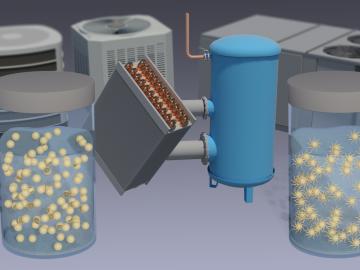
ORNL researchers demonstrated that an additive made from polymers and electrolytes improves the thermal performance and stability of salt hydrate phase change materials, or PCMs, a finding that could advance their integration into carbon-reducing heat pumps.

Michael McGuire’s recognition as the Oak Ridge National Laboratory's top scientist headlined the annual awards. ORNL Director Stephen Streiffer also presented Director’s Awards to two teams, for operational performance and continuous improvement, and to the night’s science communicator awardee
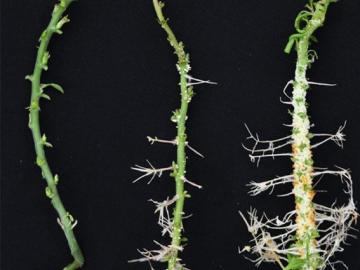
Oak Ridge National Laboratory scientists identified a gene “hotspot” in the poplar tree that triggers dramatically increased root growth. The discovery supports development of better bioenergy crops and other plants that can thrive in difficult conditions while storing more carbon belowground.

Oak Ridge National Laboratory scientists studied hot springs on different continents and found similarities in how some microbes adapted despite their geographic diversity.
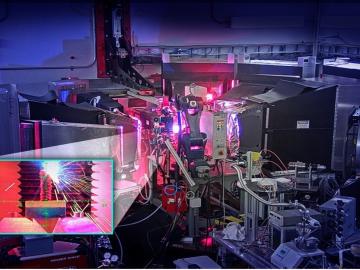
Technologies developed by researchers at ORNL have received six 2023 R&D 100 Awards.

Bryan Maldonado, a dynamic systems and controls researcher at ORNL, has been recognized by the 2023 Hispanic Engineer National Achievements Awards Conference, or HENAAC, with the Most Promising Engineer Award.

Kashif Nawaz and Mahabir Bhandari, building technologies researchers at the Department of Energy’s Oak Ridge National Laboratory, were recognized for research achievements in support of ASHRAE during the 2023 annual conference.

Eric Myers of ORNL has been named a senior member of the Institute of Electrical and Electronics Engineers, effective June 21.
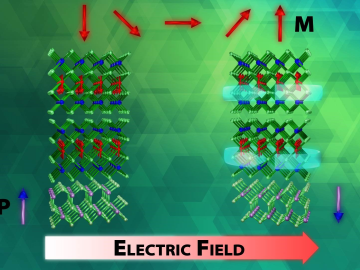
An advance in a topological insulator material — whose interior behaves like an electrical insulator but whose surface behaves like a conductor — could revolutionize the fields of next-generation electronics and quantum computing, according to scientists at ORNL.
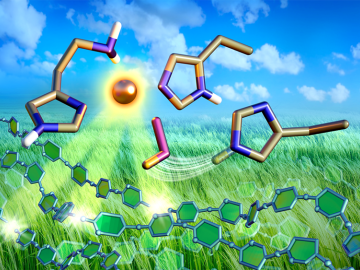
Nonfood, plant-based biofuels have potential as a green alternative to fossil fuels, but the enzymes required for production are too inefficient and costly to produce. However, new research is shining a light on enzymes from fungi that could make biofuels economically viable.


